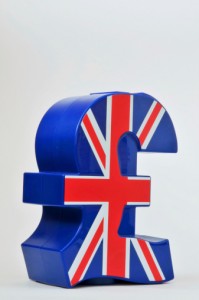Negative UK PMI Pushes the Pound into a Free Fall
 The pound seems to be on a free-fall, having fallen by more than 7 per cent against the dollar, in the last two months.
The pound seems to be on a free-fall, having fallen by more than 7 per cent against the dollar, in the last two months.
Yesterday, the pound fell by about two cents in forex trading, or 100 points, to touch $1.4993, before rebounding to $1.5019, in later trade.
This is the first instance, in two and a half years, of the sterling trading below the symbolic $1.50 mark.
The root cause for the sterling breaching the landmark $1.50 was the release of the Markit’s Purchasing Managers’ Index (PMI), which signaled contraction in manufacturing activity. The PMI stool at 47.9, way below the expected 51.0, and lower than the 50.5 score of January.
Manufacturing activity declined for the first time since October last year. The drop in manufacturing activity is partially owing to weak export orders from Europe, and coincides with the biggest lay-offs in 40 months.
Traders, both online and offline, offloaded their pounds, worried that these figures would herald a triple-dip recession. There are also fears of the government going in for a fresh round of currency-printing, which would devalue the pound further.
Another reason for the pound shedding value is the decline in UK mortgage approvals in January, to 54.7 thousand, from a revised 55.6K in December, and contrary to an expected increase to 56.5K.
The immediate prospects are not too encouraging either. The Bank of England predicts weak growth in the near term. The National Institute of Economic and Social Research (NIESR) have already cut its 2013 growth forecast to 0.7%.
The weak growth outlook and the rising debt burden have also resulted in Moody’s downgrading the triple-A rating given to UK by one notch last week, accentuating the downward spiral.





